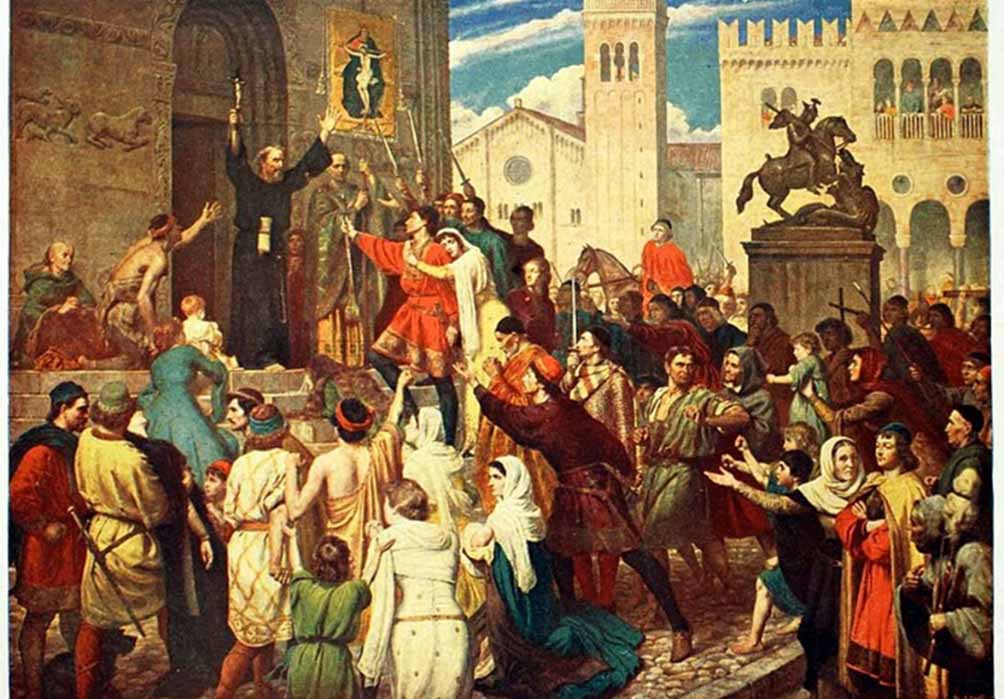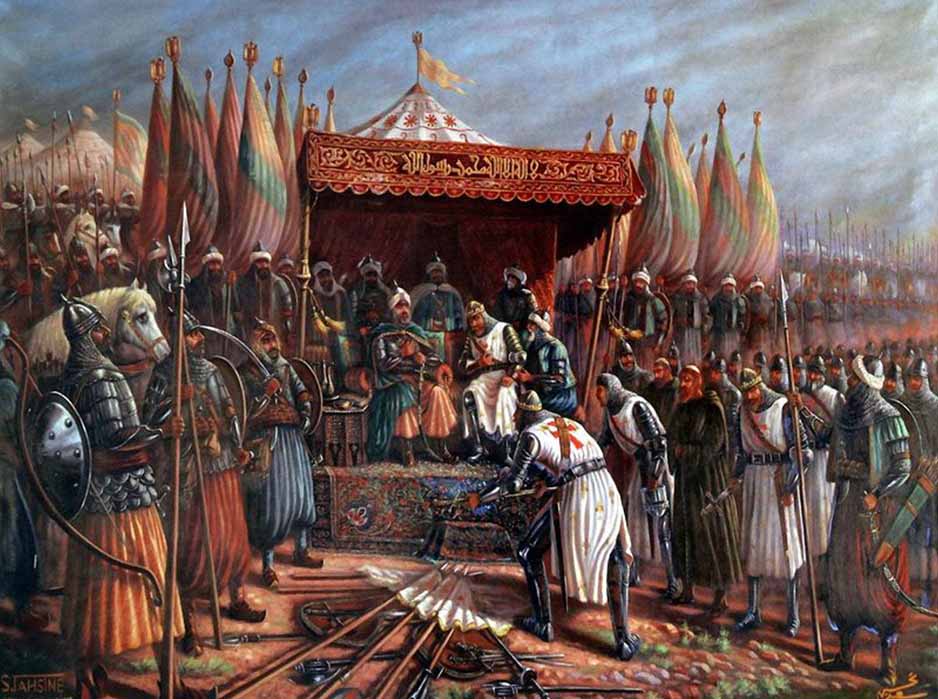
The Exploits Of Margaret Of Beverley, Caught In The Crusades
The Medieval Crusades were a series of important historical events largely told through the perspective of men. Almost all the contemporary commentators, crusader knights, and Christian generals and leaders were of the masculine persuasion, leaving little room for the viewpoints of women to bubble to the surface. Historian Christoph Maier has argued that the scholarship on female contributions to the crusades has largely been ignored by academics and has resulted in a significant gap in the available knowledge.

Peter the Hermit Preaching the First Crusade – from the painting by James Archer – from Cassell's History of England, Vol. I – anonymous author and artists (Public Domain)
The overwhelmingly male accounts of the crusades of course make the topic of women during the crusades a difficult one to explore. Yet there exist a handful of female records that allow for a deeper understanding of the common woman’s experience of this turbulent period in modern history. Among the very limited selection available is the story of Margaret of Beverley, a commoner, as written by her monk brother, Thomas of Froidmont, in his Hodoeporicon et pericula Margarite Iherosolimitane. Margaret’s excursion to the Holy Land coincided with the events of the Third Crusade, and still remains one its most fascinating narratives.
The Third Crusade: Saladin Versus Richard The Lionheart
The Third Crusade was undertaken in order to take back Jerusalem, which was seized by the Muslim battalions of Saladin in 1187. After the failure of the Second Crusade, the invincibility of the crusader was broken, as Muslim leaders realized their Western enemy was beatable. But before they could attempt to reclaim the crusader states, the Muslims knew they had to form a more united front if they had any chance of achieving success.
This unification process started with Saladin, who assumed control of Damascus in 1174 and later Aleppo in 1184. It was under his leadership that the Christian Kingdom of Jerusalem suffered a humiliating loss at the Battle of Hattin in 1187. As a result, the cities of Jerusalem, Acre, Tiberias, Caesarea, Nazareth, and Jaffa reverted to the orbit of the Muslim world. Unlike the First and Second Crusades, which were marked by utter brutality and contempt for Christian prisoners, Saladin was surprisingly merciful towards captured Christians.

Saladin accepting the surrender of Guy of Lusignan after the Battle of Hattin 1187 by Said Tahseen (Public Domain)
If they could pay their ransom, detainees were set free with no strings attached. Poorer Christians who could not buy their freedom however, were enslaved. Saladin only had a problem with followers of Western Christendom, that power that had originally initiated the crusading movement. By contrast, Eastern Orthodox Christians were protected as a minority group, with Latin Christians the only ones made to suffer for the sins of their ancestors. By the end of 1187, Christian domination had been dealt with a death-blow, with only the city of Tyre under Conrad of Montferrat remaining in their weakened grasp.
Back in Rome, Pope Gregory VIII made an impassioned plea for another crusade, offering the usual Christian remission of sins and blessings to all willing participants. A star cast of some of Europe’s most formidable commanders manned-up to lead the divine reclamation. They were Frederick I Barbarossa, Emperor of the Holy Roman Empire, King Richard the Lionheart of England, and King Phillip II of France. It was their mission to put right the shortcomings of the Second Crusade, and to steer Christianity back onto the path to glory.




